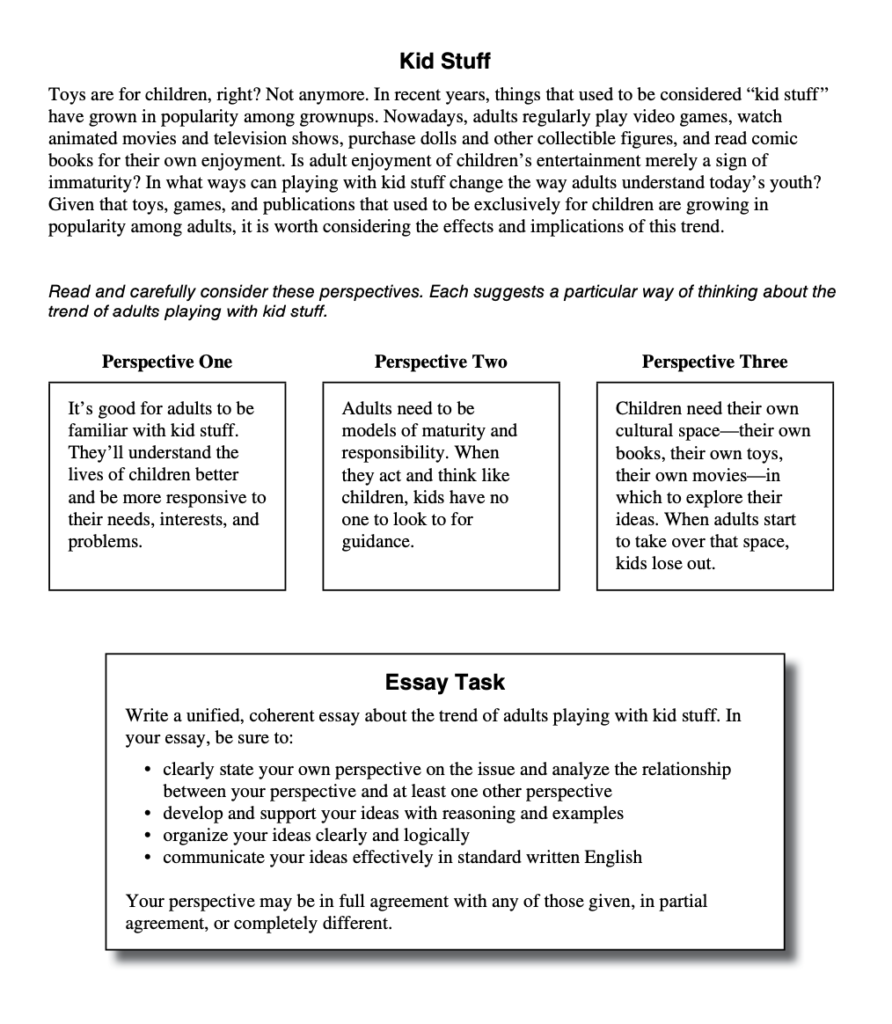As juniors begin the start of their college admissions process, there’s one question we can’t seem to escape, “Should my student sign up for the Writing or Essay component of the ACT or SAT?” For many years, there’s been a great deal of confusion about the purpose of the written essay component or “Writing” section of these tests. This component of the SAT and ACT has changed over the years, so let’s dig into what these sections currently look like.
For the SAT, this is an easy question to answer because they’ve eliminated their written essay section. As of June of 2021, any student who takes an official SAT will not have the option to complete a written essay. In some parts of the country where a “school-day” SAT is offered to students in their school, the essay may still exist as an option at the schools’ request. For more information about the SAT’s elimination of their Essay program, here is the exact language they’ve posted on their CollegeBoard website:
Writing remains essential to college readiness and the SAT will continue to measure writing and editing skills, but there are other ways for students to demonstrate their mastery of essay writing, and the SAT will continue to measure writing throughout the test. The tasks on the SAT Reading and Writing and Language sections are among the most effective and predictive parts of the SAT.
On the ACT, their essay component (referred to as the “Writing” section of the test) is optional. Students have the ability to choose whether they would like to “add on” the Writing section to their ACT administration on test day. Taking the ACT’s Writing section does incur a $25.00 fee on top of their ACT test fee of $60.00, bringing a student’s total to $85.00 to take the ACT with Writing. When taking the Writing section, the only difference students will encounter on test day is the length of their test. Students will take the normal test administration of English, Math, Reading, and then Science, before moving into the 40 minute Writing component. The ACT Writing test is available to take on all national testing dates in the United States, but you cannot take the Writing separately–it must be taken with a full ACT administration.
You may be wondering what the ACT Writing looks like. It includes a prompt describing some kind of societal concern or topic, followed by three possible perspectives on that topic. Test-takers will be asked to develop their own perspective (either a distinct point of view or similar to one of the three provided) and describe how their opinion is similar and different to the three given. Your essay will be given to two different reviewers who will each provide your essay with a score from 1-6, one being lowest and six being highest. Once your essay has been scored by both reviewers, your scores are added together, creating your final essay score out of 12 points. This essay score will be separate from your ACT composite. Let’s take a look at an example ACT Writing prompt:

While the prompt and perspectives will vary across test administrations, the “Essay Task” will not. Students will always be asked to:
- Clearly state their own perspective on the issue and analyze the relationship between their perspective and at least one other perspective
- Develop and support their ideas with reasoning and examples
- Organize their ideas clearly and logically
- Communicate their ideas effectively in standard written English
When it comes to the scoring process, reviewers are assessing a student’s essay in four categories: Ideas and Analysis, Development and Support, Organization, and Language Use. Reviewers can award a student a score from 1-6 based on the ACT’s Writing Rubric. The ACT’s full Writing Rubric is published on their website and can be found here.
For a more detailed look at how the ACT Writing section is scored, take a look at the information provided on their website. The ACT posts a variety of resources on their website, including sample prompts and essays that students can learn from.
At this time, very few colleges in the United States require an applicant to submit an ACT Writing score with their application. As of 2021, there are only eight schools that require students to submit a Writing score:
- Martin Luther College
- Molloy College
- Soka University of America
- United States Military Academy (West Point)
- University of Mary Hardin-Baylor
- University of Montana Western
- Wyoming Catholic College
- Yellowstone Christian College
There are several colleges, though, that accept Writing scores as part of a student’s application, but do not require them. In this case, they “recommend” submitting a score, although students who do not submit scores will not be penalized. This means that if you take the Writing section and score well, you may want to submit it along with the rest of your ACT/SAT scores. Make sure to take a close look at the colleges you’re considering and see what their website mentions about the ACT Writing test. An average score on the current ACT Writing test is a 6-7, so a score of 10-12 would make a student stand out as having strong writing ability.
Bear in mind that if you take the ACT with the Writing section, your writing scores and the reviewers’ comments on your essay will be sent to your high school and the colleges you selected to have your ACT scores sent. When the ACT describes this process on their website, they also mention that colleges do have the option to “access an image of your essay online.” This means that colleges can review students’ essays to make admissions or course placement decisions during the application process. High schools can even choose to review students’ essays to monitor students’ skill levels and make determinations about school curriculum decisions.
In summary, most students taking the ACT or SAT do not need to worry about taking the Writing section. It will not hurt a student to take the Writing on the ACT, but it is not necessary unless they plan to apply to one of the few colleges that still requires it. Make sure that students are doing all necessary research while in their college search to ensure they understand how the Writing could affect their admissions’ potential. If you have any additional questions about the Writing portion of the ACT or SAT, please contact us at [email protected].

